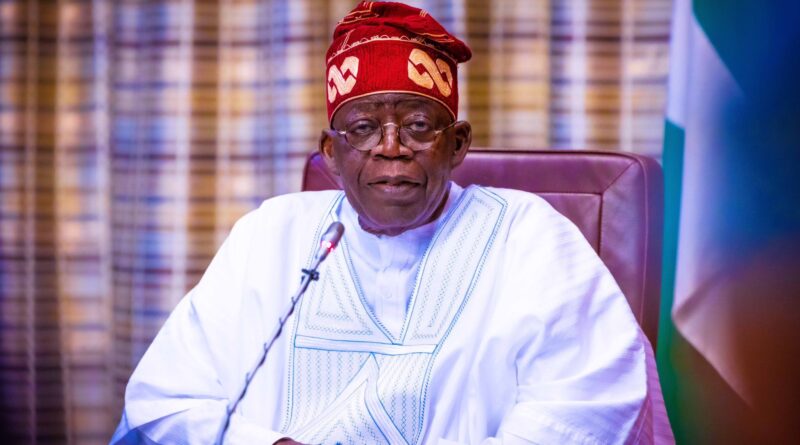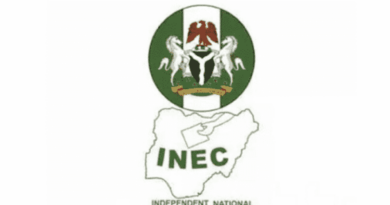Tinubu Inherited A Big Mess From Somebody He Installed In Office
By Dr. Dele Sobowale
Tinubu allowed too much politics to get in the way of a sound economic programme. He made promises that could not be fulfilled
Perhaps the biggest issues around President Tinubu’s performance in office so far are centered on the economy and the general wellbeing of individuals and businesses in the country. Most Nigerians have had reasons to complain openly in public discussions and social media that they have never had it so bad in terms of economic well being.
At the Vanguard’s Conference Hall, Dr Dele Sobowale, Vanguard Newspapers’ columnist and an accomplished economist tried to put a context to this issue by noting that the current regime started on a very difficult economic platform.
But he also indicated that President Tinubu has not addressed the problems he inherited, adding that so far the sitting president may have even complicated the problem.
Dissecting the Renewed Hope agenda
Sobowale stated: ‘‘Usually, in the past 38 years, when I am assessing governments, I would generally like to start from what they promised us, and what they have delivered up to that point in time.
‘‘Indeed, President Bola Tinubu inherited a big mess. It must be stated that he inherited a big mess from somebody he installed in office.
‘‘So, he was the architect of his own misfortune, in many respects. I was shocked when I collected my own copy of his Renewed Hope Agenda and I read it thoroughly, word for word. The person who called me and sent it (the manifesto) to me asked what I thought of it. I said, I can describe it in one word, hogwash.
‘‘It is so full of many promises that cannot possibly be redeemed. It was more or less a political document that somebody wanted to build an economic programme upon. No one can build a sound economic programme on what is essentially a political document.
‘‘I became alarmed when I got to the point where it said, ‘we are standing on the foundation emplaced by the current (past) administration’. He wanted to stand on a foundation laid by that administration (the Buhari administration).
‘‘The meaning of this is that I am standing on a foundation that has crumbled under us, and which could never work. More or less, in my own summary, he allowed too much politics to get in the way of a sound economic programme. He made promises that could not be fulfilled.
‘‘If you read it (the Renewed Hope agenda), it says in 2025, Nigeria is supposed to be producing and exporting 2.06 million barrels (mbpd) of crude oil per day. But at the end of April, we did only 1.4 mbpd. In fact, in his two years in office, there has not been any month we did up to 1.7 mbpd. The average has been more like 1.5 mbpd, and he promised us 2.06 today. He is even talking about 4 million barrels by 2027. We will never get there. It is not a curse; it is just a fact because the figure is unrealistic.
‘‘Also, he made another cardinal mistake. He packed too many of the Lagos boys who helped him as governor, into the Federal Government. Lagos is not Nigeria, Nigeria is not Lagos. A good commissioner in Lagos State might not be a good minister at the federal level. At the federal level, you need people who have some kind of experience for years. You do not take good commissioners in your state and make them federal ministers.”
On security
Sobowale also lamented the security challenges that are frustrating the enabling environment for businesses. On this he narrated the historical antecedents saying, ‘‘I lived and worked in the North for 10 to 12 years. In addition to that, I was always in the North for almost 15 years after that. So, I know the area very well. Before Kebbi and Zamfara states were taken out of Sokoto State, I was into rice growing and milling in Sokoto. I had a rice mill in Sokoto.
‘‘Just in pursuit of rice smugglers, we were able to identify no less than 27 illegal border entries into Sokoto State. That was 1990. And when I was in Borno State, before Yobe was excised out of it, there were no less than 38 illegal entries into Nigeria from Borno State.
‘‘So, that gives you an idea of the kind of security problem we have. In fact, at the end of the day, by the time I became the National Sales Director for Boots, which was the most widely distributed group of OTC drugs in the 1970s, I knew of no less than 800 illegal border posts in Nigeria, through which people could enter. So, the security forces in Nigeria are already handicapped by the number of border entries we have in and out of this country.
‘‘Now, what started as the Boko Haram issue has morphed into many conflicts in Borno and Yobe states. There is ethnic violence; Kanuri versus Fulani, Kanuri versus Hausa and many others. In Taraba State, where General Theophilus Danjuma (rtd) comes from, among the most prominent ethnic groups are the Jukun, and the Jukun are highly protected within their territory.
‘‘When General Danjuma was talking about protecting yourself, the Jukun in Taraba State, the Wukari were already doing that. They were already arming themselves.
‘‘But the problem is that, in arming themselves, they started taking the law into their own hands.
‘‘Last weekend, when I got my copy of Weekend Trust, it showed instances of people actually slaughtered like cows. Now, where the harassment started, the violence first, other people are now reacting and taking laws into their own hands. In many areas of Plateau and Benue states, they are not waiting for the Police or the Army to defend them. They are going after the herdsmen. The people in Gboko are not waiting for the Police; they are going after the herdsmen. The Idoma are not waiting for the Police to protect them, they are going after the herdsmen.
‘‘All of a sudden, we have a situation where it is not a simple matter of just Boko Haram, Lakurawa, Islamic State’s West Africa Province, ISWAP.
‘‘We also have the issue of ethnic violence. Depending on which state you are in the North, the security situation that the Police and the army are forced to quell, are now more than just herdsmen and Boko Haram. It is inter-ethnic conflict.
‘‘Some of my old friends who are still alive and who call me from time to time paint a totally different picture than the simple picture that we paint in the public media of what the security forces have to overcome. If you are in Pankshin, your views of security situations are more than that of a man in Argungu.
‘‘The truth of the matter is that our security forces are overwhelmed. They really do not know who to really defend against. We read in today’s papers that Boko Haram and ISWAP are actually going and attacking army barracks. That has an implication. They really want to strip us of our defense. When they demoralise the Army, the Police and the Air force, then the entire country becomes defenseless. That is my biggest concern.
‘‘I was listening to what the former Inspector General of Police, IGP, submitted in this Conference. He has to be, by nature of his position, very careful about what he is saying. But he is actually telling us the truth that some people might not like to hear. The truth is that equipping the security forces alone might not solve our problem.
‘‘For instance, a situation where the Governor of Borno State unilaterally pardoned thousands of Boko Haram operatives because he thought they were repentant. They (repentant terrorists) have killed a lot of people. They have rendered a lot of people homeless. They have created widows. They have created orphans. They have devastated communities.
Zulum unilaterally takes thousands of them and says they have repented and you are forgiving them. How do you monitor their movements? At that time, I predicted that, ‘Mr. Governor, everybody is going to regret what you have done.’ Look at what is happening in Borno State now.
‘‘My own view, what Governor Zulum has done is to have released more harmful people into the community than ever before and create more problems for the security forces of Nigeria.
‘‘Look, if I happen to be in the Air Force, in the Police and I have never been to Borno State, I will be praying that they do not ask me to go there. Why? It is because I do not need to go and die there.
In this kind of operating environment how many businesses can thrive? How much growth can the economy record?
Direction of the economy
My first analysis of government budgets, federal government budgets, what I did in Vanguard was in 1988. A few days ago I was going through my archives, and I brought up that 1988 analysis.
‘‘I took my analysis of the 2025 budget by President Bola Tinubu and it is remarkable how all the complaints, the things I was saying in 1988, still apply to Tinubu’s budget. You see, governments in Nigeria do not take budgets seriously.
‘‘Look, from 1974 to 1998, when I was the sales director, marketing director, or marketing manager, or the chief revenue officer of a company, I learned very quickly that what you put in your revenue budget is a promise to the company, to the shareholders.
‘‘If you look at the income statement, the first line is turnover, the revenue that is expected. So each time we look at this year’s budget, and he said N54 trillion, he will know what I’m saying.
‘‘If the managing director of a company presents to the shareholders what you are expecting this year, turnover of N54 trillion, if at the end of the year, he is able to achieve only N40 trillion, he will probably be out of office at the next board meeting.
‘‘If the shareholders are still lenient enough to give him another chance, another year, and assuming he promises N54 trillion, and by half year, they are still on N22 trillion, they will kick him out before the end of the second year. ‘‘That 54 trillion is a promise, and before you make that promise, you must be sure that you can redeem it, because so many things are going to depend on your saying, ‘I can achieve N54 trillion revenue’. The minute you fail to achieve that revenue target, so many things are going to go out of kelter in that company. ‘‘Since 2013, when Dr. Ngozi Okonjo-Iweala first put in a budget with 2 mbpd of crude oil, every government has been using 2 mbpd, and not a single day in the 12 years to date have we achieved that target. Why do we continue to use it?
‘‘Look, if you are on the board of directors of the company and the sales director says turnover will be 2-3 million, first year he fails, second year he fails, why will you allow him to repeat the same thing for another 12 years? Why do we stick to it? Why not sit down seriously and ask themselves what is the realistic volume of oil per day that can be achieved? And then base the budget on that.
‘‘If we are going to base the budget on that realistic benchmark that will lead to some consequences. It will lead to downsizing the size of the federal government and ultimately, government’s spending. Why do we need 48 ministers? No other country in the world has more than 25. Why does Nigeria need 48?’’
In the next two years
Looking at Tinubu’s economic performance at the end of his first term, Sobowale stated: ‘‘One thing about realistic budgeting is that it disciplines you. Whether it’s the private sector or the public sector, realistic good budgeting disciplines everybody.
‘‘To some extent, the government is the sum total of all the families in the economy. Can you imagine if you and I have realistically known that we are going to earn N2 million, but we tell our children we are going to earn N5 million.
‘‘Immediately, we create problems for ourselves by making that declaration, because now everybody in the family will expect more out of that N5 million. And then you are straining to meet that N5 million need. Then you are borrowing money, and then you are getting involved in corrupt practices.
‘‘I didn’t read about where we are supposed to be now. How many billions of dollars is the GDP planned to be? It would make us laugh. Because where we are is about one quarter of what this budget says we should be.
‘‘You cannot in the private sector promise the shareholders $600 billion and produce only $170 billion. They will throw you out’’.



